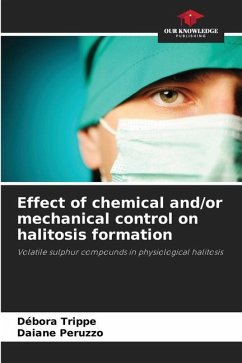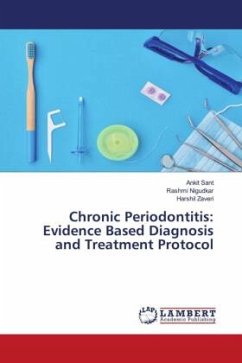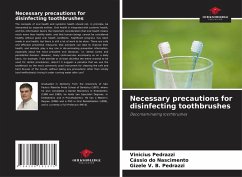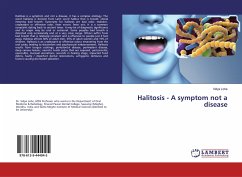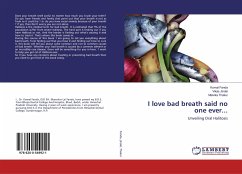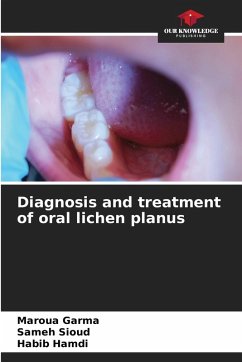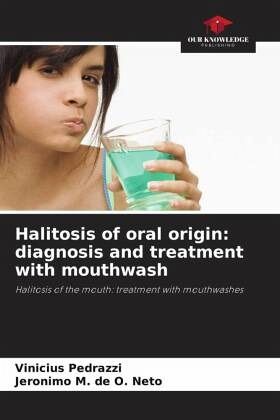
Halitosis of oral origin: diagnosis and treatment with mouthwash
Halitosis of the mouth: treatment with mouthwashes
Versandkostenfrei!
Versandfertig in 6-10 Tagen
33,99 €
inkl. MwSt.

PAYBACK Punkte
17 °P sammeln!
Hydrogen sulphide (H2S) has recently been recognised as a very important gasotransmitter with neuroprotective, antioxidant, anti-inflammatory, vasodilatory, anti-apoptotic and angiogenic functions, both in physiological and pathological conditions. When methylated, it produces methanethiol (CH3SH), both of which are the most offensive gases responsible for intraoral halitosis. This cross-over clinical trial evaluated the effectiveness of chlorhexidine (CHX) or essential oil (EO) based rinses with and without alcohol in reducing H2S and CH3SH levels. Compared to baseline levels, in the first ho...
Hydrogen sulphide (H2S) has recently been recognised as a very important gasotransmitter with neuroprotective, antioxidant, anti-inflammatory, vasodilatory, anti-apoptotic and angiogenic functions, both in physiological and pathological conditions. When methylated, it produces methanethiol (CH3SH), both of which are the most offensive gases responsible for intraoral halitosis. This cross-over clinical trial evaluated the effectiveness of chlorhexidine (CHX) or essential oil (EO) based rinses with and without alcohol in reducing H2S and CH3SH levels. Compared to baseline levels, in the first hour, only OEc/a was able to significantly reduce breath (H2S p <0.0001 and CH3SH p=0.001) for both gases and its effect lasted up to three hours (H2S p <0.0001 and CH3SH p=0.001). CHXc/a (control) reduced H2S in the first hour (p = 0.001) and lasted for three hours (H2S p<0.0001) with no effect on CH3SH. CHXs/a only reduced H2S levels, but less effectively over the whole period (p=0.001 for all 3 times). OEs/a had no effect on breath, which increased over time for both gases. Conclusion: OEc/a performed better in relation to intraoral halitosis.



